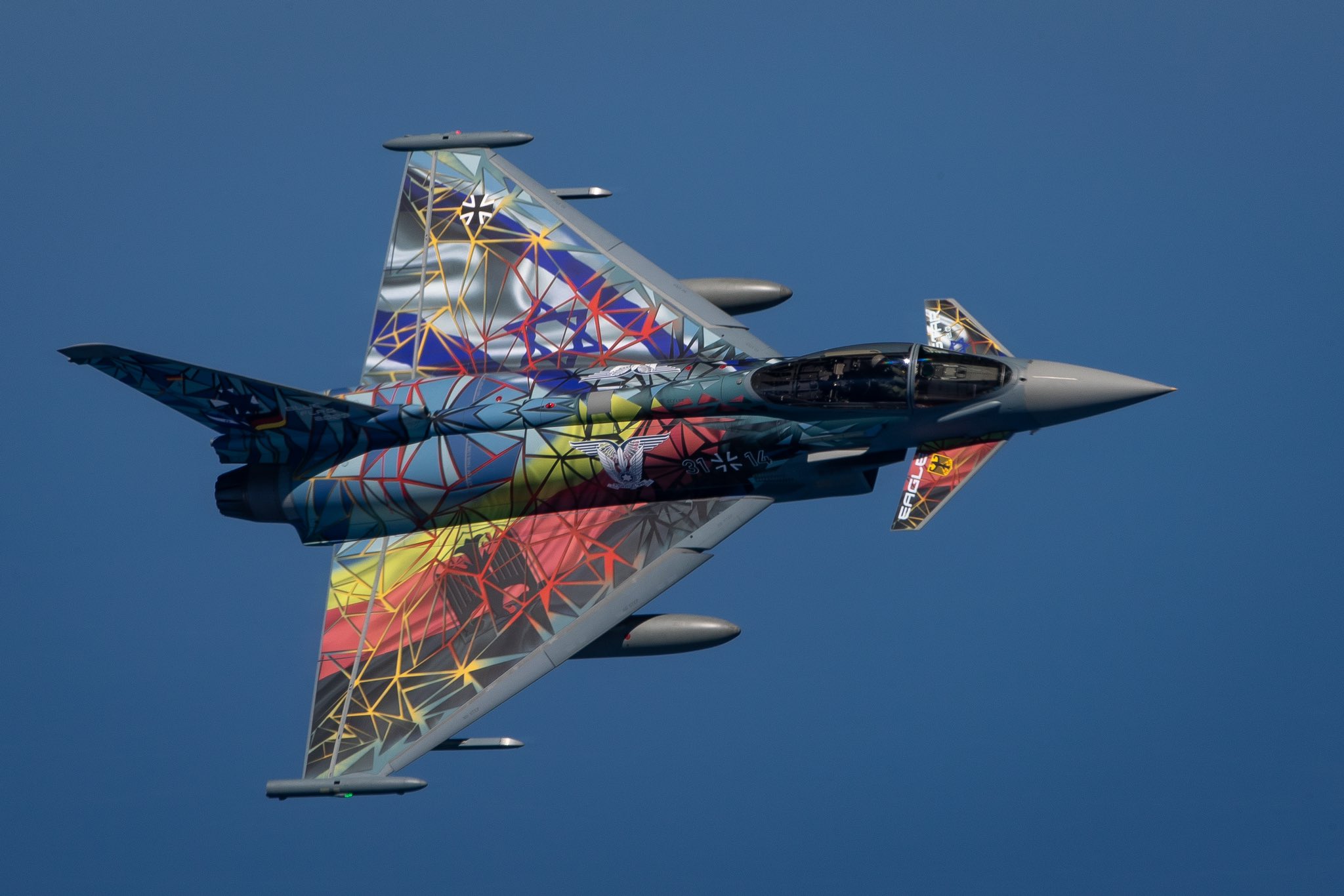After years of opposing arms transactions with the Gulf kingdom, Germany seems to have reevaluated its stance on the potential sale of Eurofighter jets to Saudi Arabia. This shift in position is influenced by Saudi Arabia’s contribution to Israel’s security, according to reports.
Foreign Minister Annalena Baerbock announced on January 7 that Germany is prepared to greenlight the sale of Eurofighter jets to Saudi Arabia.
Baerbock, during her visit to Israel, emphasized the collaborative decision-making power held by Germany, Britain, Italy, and Spain—nations involved in the joint production of the Eurofighter, each possessing the authority to veto such arms deals.
This announcement comes after Berlin’s continuous opposition, dating back to 2018, blocking a proposed arms deal sought by London. Germany’s reservations stemmed from the murder of dissident journalist Jamal Khashoggi in the Saudi consulate in Istanbul.
During her visit, Baerbock underscored the pivotal role played by Saudi Arabia in addressing the Middle East security crisis, particularly in the aftermath of the Israel-Hamas war that commenced on October 7.
Despite the conflict, both Saudi Arabia and Israel have not deviated from their policy of normalization, according to Baerbock.
Baerbock pointed out Saudi Arabia’s crucial contribution to Israel’s security, noting its efforts to mitigate the risk of a regional conflagration.
She expressed gratitude for Saudi Arabia’s active role in intercepting missiles launched by the Houthis at Israel. She openly acknowledged the use of Eurofighters by the Saudi air force in this context.
Baerbock described this as “an open secret,” highlighting how Riyadh’s deployment of Eurofighters underscores its commitment to shaping a more positive future in the region.
Besides that, Germany’s reversal on arms sales, particularly the potential approval for Eurofighter jets, is poised to benefit aircraft manufacturer Airbus, which had consistently criticized Berlin’s previous reluctance to proceed with additional Eurofighter sales.
This shift in policy is also advantageous for Britain’s BAE Systems, holding a multi-billion Pound contract for assembling Typhoon components at its Lancashire factory.
Reason Behind Germany’s Opposition To Arms Sales To Saudi Arabia
The issue of arms exports to Saudi Arabia remains contentious due to concerns surrounding the human rights situation in the kingdom and its involvement in regional conflicts as a growing military power.
Chancellor Olaf Scholz declared in July 2023 that his government would not endorse the export of Eurofighters to Saudi Arabia in the foreseeable future.
This decision was part of an agreement within the governing alliance involving three parties to refrain from supplying weapons to countries engaged in the Yemen conflict.
As a result of this stance, Germany has impeded a British proposal to sell 48 additional Eurofighter Typhoons to Saudi Arabia.
However, Germany’s veto on selling Eurofighter Typhoons to Saudi Arabia significantly prompted Riyadh to discuss procuring Dassault Aviation’s Rafales from France.
But the latest statement from the German Foreign Minister suggests a change in Berlin’s position, signaling a potential shift towards approving the sale.
In the aftermath of the surprise attack by Hamas on Israel, experts emphasize the significance of equipping Saudi Arabia with the necessary weapons to intercept missiles launched by Iran-backed groups, preventing them from reaching Israel.
In an opinion piece, Bradley Bowman and Ryan Brobst argued that a more proactive Saudi effort to intercept missiles from Yemen could significantly reduce the burden on Israel in countering these attacks.

This proactive approach could be precious if Israel faces a significant conflict with Hezbollah in addition to the ongoing conflict with Hamas, both groups being adversaries of the Saudi government, the experts added.
By actively safeguarding its airspace against potential intrusions by an Iranian proxy, Saudi Arabia, whether intentionally or inadvertently, has provided support to Israel. This action underscores shared interests between the two nations.
Nevertheless, the green light for selling Eurofighter Typhoons continues to encounter resistance within Germany. In response to Baerbock’s statement, Ricarda Lang, a co-leader of the Greens party and fellow member, expressed immediate pushback.
While acknowledging Saudi Arabia’s support for Israel in the aftermath of the Hamas surprise attacks, Lang pointed to the persistent human rights concerns in Saudi Arabia as the primary grounds for her continued resistance to selling Eurofighters to the Gulf power.
Green MP Jamila Schäfer has also voiced strong reservations about potential arms sales to Saudi Arabia. Citing the kingdom’s involvement in serious human rights violations and its role in the Yemen war, Schäfer expressed concerns about the potential misuse of weapons in violation of international law.
- Contact the author at ashishmichel@gmail.com
- Follow EurAsian Times on Google News




